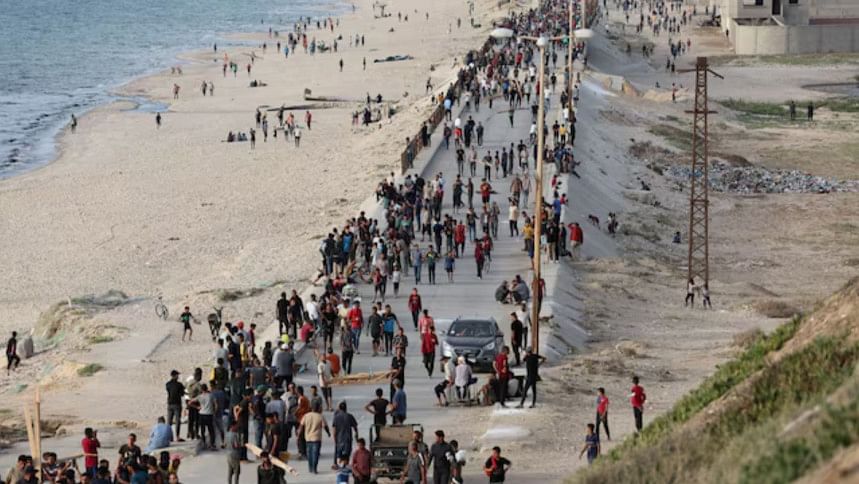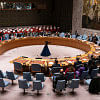Will Gaza’s incessant bleeding end under the new US leadership?

Acclaimed Palestinian writer Adania Shibli's novel Minor Detail was selected for the LiBeraturpreis Prize 2023 by German literary organisation LitProm. Based partially on historical facts, the book recounts the rape and murder of a Palestinian girl in 1949 by Israeli soldiers, who were later convicted of murder (but not rape) by an Israeli court. Originally, the award ceremony at the Frankfurt Book Fair had been announced for October 20, 2023. A few days before the scheduled date, LitProm cancelled the ceremony in response to protests by German journalists who said the novel expressed antisemitic attitudes. The ongoing war between Israel and Hamas was also mentioned as another reason for the cancellation, although the writer had nothing to do with Hamas or its actions.
Shibli, who has a PhD from the University of East London, lives in Jerusalem and Berlin, speaks Arabic, English, Hebrew, French, Korean and German, has taught at the University of Nottingham, and has never supported violence. Despite her international reputation, recognition, and widespread support from more than 1,000 high-profile writers, including Nobel laureates, LitProm could not appear to support antisemitism. The slightest hint of doing such a thing is an absolute no-no in the West, regardless of the prevailing political, social or cultural scene. We must see the outcome of the US election through this lens. The winner in the race for the White House is now already known, but that has nothing to do with the US policy towards the decades-old Israel-Palestine conflict.
Let's revisit the genesis of the current situation. Part of the broader Middle East crisis, last year's escalation started when Hamas-led militant groups launched a surprise attack on Israel on October 7, 2023, involving a rocket barrage and a few thousand militants breaching the Gaza–Israel border, attacking Israeli civilian communities and military bases. Israel retaliated with ultimate lethal force. Its sophisticated military machine, aided by the most advanced weaponry, unleashed a brutal terror campaign of indiscriminate killing in Gaza.
While continuing its support for Israel's right to act in self-defence, Washington has been mediating peace talks and proposing ceasefires. For instance, in May 2024, President Joe Biden announced a three-phase plan aimed at ending the conflict, which included a complete ceasefire, the withdrawal of Israeli forces from Gaza, and the release of hostages. The US also urged the UN Security Council to support this plan. However, such efforts have faced significant challenges. Negotiations have been stalled, and the warring parties are unwilling to withdraw from their demands. Hamas has demanded a lasting ceasefire and a full Israeli withdrawal from Gaza, while Israel insists on maintaining control over parts of the territory. Notwithstanding Washington's efforts to find a peaceful resolution, its iron-clad commitment to Israel's security and the continued supply of weapons question its sincerity.
The irony of history is stark in this conflict. For a thousand years, Jews were oppressed by Christian ruling powers across Europe, culminating in the Holocaust, perhaps the largest recorded genocide in human history. On the other hand, Arab Muslim rulers in Iberia and Africa were relatively more tolerant of the Jews, often appointing them to high government positions. Today, the roles have reversed, with Jews as the oppressors and the Arabs as the oppressed.
Regardless of the election outcome, the US policy will almost certainly remain the same: to support and arm Israel while largely ignoring the Palestinians' plight. Too many people benefit from this conflict, making it difficult to stop the war. We must also note that it was Israel who had long nurtured Hamas to counter the moderate and secular Palestine Liberation Organization (PLO).
Israel's Prime Minister Benjamin Netanyahu and his hardline government need a war to remain in power. Hamas benefits from violence as it can appear to be the saviour of the Palestinians. The US government can't afford to lose the Israeli lobby's support. Powerful defence contractors in the US must continue the highly profitable war. No one in the region has the military might to match Israel's, and perhaps most crucially, the West's collective sense of guilt for the many centuries of dehumanising the Jewish people forces them to blindly support Israel.
Adania Shibli's work often highlights the everyday realities and struggles of Palestinians under Israeli occupation. In Minor Detail, she poignantly captures this sentiment, "By the way, I hope I didn't cause any awkwardness when I mentioned the incident with the soldier, or the checkpoint, or when I reveal that we are living under occupation here." This quote underscores the daily hardships and emotional toll of living under occupation. Oppression and the constant presence of occupation in the lives of Palestinians are now normalised, leading to an immeasurable human cost.
Will Trump's second term be able to change it? Or any other future president?
Dr Sayeed Ahmed is a consulting engineer and the CEO of Bayside Analytix, a technology-focused strategy and management consulting organisation.
Views expressed in this article are the author's own.
Follow The Daily Star Opinion on Facebook for the latest opinions, commentaries and analyses by experts and professionals. To contribute your article or letter to The Daily Star Opinion, see our guidelines for submission.

 For all latest news, follow The Daily Star's Google News channel.
For all latest news, follow The Daily Star's Google News channel. 










Comments